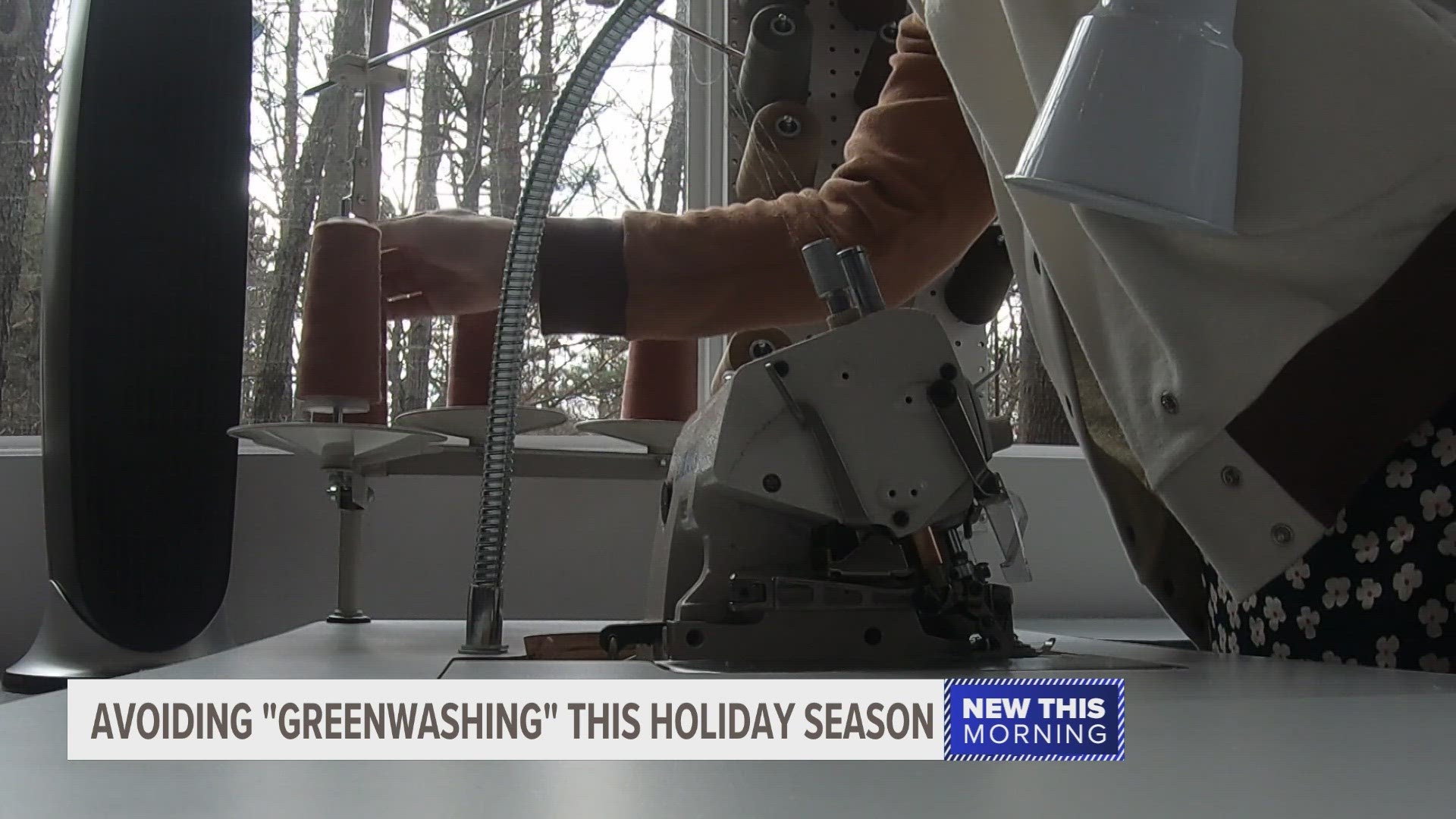GRAND RAPIDS, Mich — Many businesses advertise as being sustainable, but experts are warning that not all of them actually are.
"Greenwashing" is a term that "refers to a form of disinformation published by an organization to appear to be environmentally friendly," according to ABC.
It's common practice in a wide-range of brands, including in the food and airline industries, but one of the largest contributors is the fashion industry.
"Greenwashing is companies who are saying that their products are made ethically or sustainably," said Olivia Deters. "I think one of the biggest things that companies are saying now is that they're using recycled plastic bottles to make their fabric, and that's actually not sustainable at all."
Deters is the designer at Conscious Clothing, located in Belmont. Their mission is to make sustainable clothing that matches their advertising.
"We use all sustainable fabrics, like all plant-based fabrics, organic cotton, linen, hemp," said General Manager Liz DeBraber.
It's a mission seen in businesses across West Michigan, with a similar concern at Plannett Gunnett in Kalamazoo.
Founder Siera Gunnett said companies will use tricks in their products to make things look more eco-friendly than they really are.
"Now it's in a tinted green bottle, so it looks like it's made from recycled plastics, but nothing actually changed," Gunnett said. "It just is marketing it as eco-friendly, but there's nothing that actually made it eco-friendly. It just simply looks like it has like the natural looking colors."
They both agree that the work is more important with the rise of fast fashion brands like Shein. They said true sustainability isn't just about protecting the environment, but also about the employees doing the work.
"When you invest in your clothing, you're purchasing items that you know the people who are making them are treated fairly. They're paid and compensated a livable wage," Deters said.
The holiday shopping season makes this all extra important. To avoid "greenwashing", they encourage doing your own research, shopping locally and investing in pieces that will last longer.
"We try to make it classic so that you can throw it with a trendy item, and it's gonna last," DeBraber said. "Then 10 years later, you throw it in with something else, and it still is working really well for you."
They then said you can pass down those pieces to the next generation, something Gunnett says is already important to Gen Z.
"The more I see our generation kind of develop and kind of grow into adult lives, they still want this change," Gunnett said. "They're still advocates for it."
►Make it easy to keep up to date with more stories like this. Download the 13 ON YOUR SIDE app now.
Have a news tip? Email news@13onyourside.com, visit our Facebook page or Twitter. Subscribe to our YouTube channel.
Watch 13 ON YOUR SIDE for free on Roku, Amazon Fire TV Stick, and on your phone.

